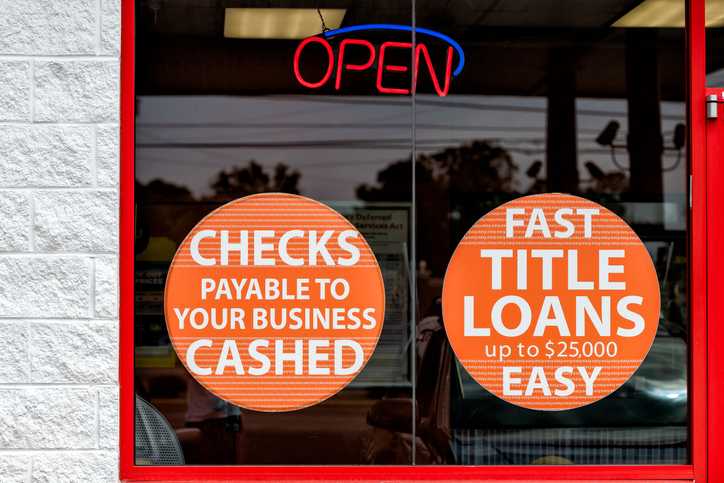Consumer with no credit or poor credit have few options available when they need to borrow money. Certain types of lenders step in to fill this void with high-interest loans that can seem manageable at first, but quickly spiral out of control as the reality of sky-high interest rates create balances that are difficult — if not impossible — to repay. You’ll want to stay away from the following types of high-interest loans.
Payday Loans
At first glance, payday loans seem like a good option if you’re low on cash and just need a little boost to tide you over until your next payday. Unfortunately, they are anything but innocent. Here’s how they work: the borrower receives a cash loan, and agrees to pay it back on their next payday, along with a “fee,” usually $15 per $100 borrowed.
For example, a $350, 2-week loan would have a fee of $52.50. But when converted to an annual percentage rate, that fee becomes an interest rate of almost 400%! Borrowers who are unable to pay back the loan amount plus interest, after two weeks renew the loan and pay the fee again. When you consider that the average payday loan consumer repeats the same payday loan an average of seven times, they will end up paying back in fees more than the original loan amount received. No matter how you do the math, it never pays to get a payday loan.
Car Title Loans
Another form of high-interest lending, car title loans are short-term loans that use the title to a borrower’s vehicle as collateral. Like payday loans, they have extremely high interest rates (around 300%), fees and heavy consequences for missing payments. In fact, one out of every five borrowers who get a car title loan end up surrendering their vehicles because they can’t pay it back.
Refund Anticipation Loans
Most commercial tax preparation companies now offer the option of receiving a refund anticipation loan. These loans are really just an advance on your IRS tax refund. While it’s always tempting to get your money sooner, there are a few issues to consider with these loans. The cost of the tax preparation and any service fees will be deducted from the loan. Plus, if the preparer has made any errors, your actual refund may be less than what you borrow. This means you will owe money back to the tax preparer. You’re better off waiting for the IRS to send your actual refund amount after they receive and review your return. You won’t be waiting that long; the whole process happens more quickly these days thanks to e-file and direct deposit.





